October 10, 2019
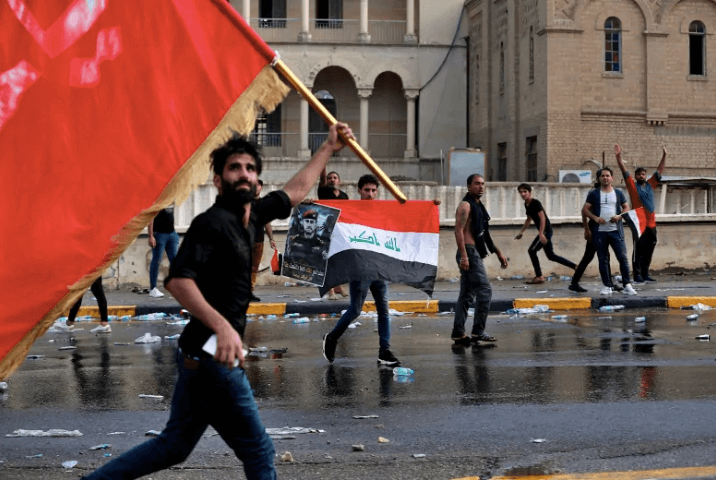
Latin America remains the epicenter of the virus while the United States sees a new spike in cases that has resulted in a return to stricter measures.

The country’s coronavirus count takes a turn as it sets a new daily record of infections on Thursday. The spike in cases has led many states to pause reopening and reimpose restrictions in an attempt to curb infection. The Centers for Disease Control and Prevention now projects thousands more deaths this month.

China has warned of strong countermeasures against the U.S., Australia, and the U.K. should they pursue retaliatory actions against their national security law in Hong Kong. Senior officials have said that the U.K. has no right to grant residency to Hong Kongers, and that it would “bear all consequences” for breaching international law. In the latest standoff between China and India that began with a violent border clash, India has banned 59 apps developed by Chinese firms over concerns that these apps were engaging in activities that threatened India’s national security. Among the apps banned are TikTok, WeChat, QQ, and Xiaomi which count India as one of their biggest overseas markets. Disturbing new evidence from leaked Chinese government documents have also revealed a systematic state campaign to suppress minority births in Xinjiang with potentially genocidal sterilization plans. This campaign’s explicit aim is to reduce 2020 birth and population growth rates in Xinjiang’s southern Uighur regions by “at least” 0.4 percentage points below the 2016 level. Last but not least, researchers in China have discovered a new type of swine flu with purported pandemic potential. Named G4, the virus is genetically descended from the H1N1 strain that caused a pandemic in 2009. The World Health Organization (WHO) has announced that it would study the virus carefully.

Forty days after China announced it would pass a national security law for Hong Kong, that legislation is now in full force. The law was drafted almost entirely in secret in closed-door meetings that even Carrie Lam, Hong Kong’s Chief Executive, was not part of. Promulgated on Tuesday night through China’s National People’s Congress, the law now criminalizes “acts of secession, subversion of state power, terrorist activities, and collusion with foreign or external forces to endanger national security.” The maximum sentence given for each of these four crimes is life imprisonment. The national security law now trumps any existing Hong Kong laws in the case of conflict and grants Beijing broad powers to prosecute Hong Kongers deemed to have committed especially egregious crimes. Just this week, Hong Kong Police have reportedly made more than 300 arrests for illegal assembly and other offences, with nine involving violations of the new law.
In response, the United States and its allies have taken steps to punish China. The U.S. Senate unanimously passed a bill to sanction Chinese officials involved in the national security law’s implementation and the House of Representatives passed legislation to sanction banks that conduct business with these officials. The United Kingdom, meanwhile, has laid down plans to allow 3 million Hong Kongers to seek refuge and apply for citizenship. Australia is considering offering safe haven, and Taiwan has also opened a new office to help fleeing Hong Kong residents.

In a rare move, three Myanmar military officers have been found guilty by a military court-martial for atrocities committed against the Rohingya people in the Rakhine state. Myanmar is currently facing charges of genocide before the United Nations. A recent landslide in a Myanmar jade mine has killed at least 162 people, and many others are still missing. The disaster was reportedly triggered by heavy rain in the area, which set off waves of rock and mud. Myanmar officials appear to be calling out China for arming terrorist groups to allegedly use them as a bargaining chip for smooth implementation of Belt and Road Initiative projects. Many weapons seized by the military from ethnic armed groups have been found to be Chinese-made. The country has also set its general election day for November 8, in a vote widely seen as a test for the country’s fledgling democratic government led by the National League for Democracy.

This week the Zimbabwe government shut down the stock exchange in an attempt to stabilise the local currency as it continues to lose value with hyperinflation at more than 785%. Shop owners and traders are reportedly refusing to accept payment in local banknotes, sparking a police crackdown earlier this week in which 102 people have already been arrested. They are being charged with breaching a section of the Bank Use Promotion Act for their opposition to the use of local currency.
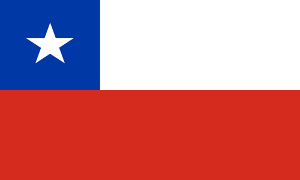
The country is reporting the highest per capita infection rate of the coronavirus of any major country, with 13,000 cases for every 1 million people. Reporters point to widespread social inequity in the country as the main reason for the devastating impact of the pandemic. Additionally, as borders remain closed to curb infection, thousands of foreign workers are left stranded within Chile.
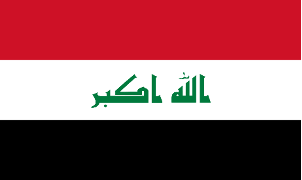
Iraqi officials discovered a new mass grave this week in the North of Iraq – a remnant of the brutal rule of the Islamic State (IS) group. The mass grave, located in the village of Humeydat, stretches several hundred meters with dozens of bodies excavated. Although awaiting investigation, it is believed that the bodies are Shiite convicts taken from the local Badoush prison by IS shortly after IS seized Mosul in June 2014. According to an investigation by the Human Rights Watch, 1,500 inmates were kidnapped and taken to this stretch in the desert. Meanwhile on the 2nd of July, the U.S. Supreme Court declined to hear a plea by almost 1,400 Iraqis who have been convicted of crimes in the U.S. requesting to delay immediate deportation to Iraq where they will likely face persecution and torture. The group hoped to reopen their case before immigration judges and present new evidence.
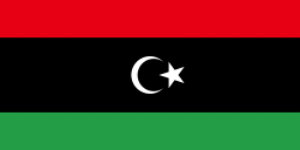
On Wednesday, U.S. officials encouraged Haftar’s Libyan National Army (LNA) to disband in a virtual meeting. Libya’s conflict is a “rapidly escalating proxy war” between regional powers, contrary to both American and Libyan interests the officials claimed. Today, Russia announced that it will reopen its embassy in the country, though it will be temporarily based in Tunisia. Russian diplomats were last evacuated from Libya in October 2013 after the embassy in Tripoli was attacked.

On Tuesday, the European Union led a virtual conference of over 60 governments and Non-governmental organizations as the UN called for $10 billion worth of aid for Syria. The aid, $3.8 billion for aid inside Syria and $6.04 billion for countries hosting refugees, will be used to support refugees as Syria enters its ninth year of armed conflict and the coronavirus still remains prevalent. International donors have pledged $7.7 billion in humanitarian aid; however, aid group Oxfam said the sum is “simply not enough.” However, in the meantime, there have been reports that numerous tents in war-torn Idlib province are being replaced with new brick houses, with more than 2,000 families now living in brick houses and a limited set of household necessities.

Arab Tawhid Party leader e-minister Wiam Wahhab called on Prime Minister Hassan Diab to resign when he posted a tweet stating “I call on PM Diab to resign before they oust him through street action, because there are negotiations behind the scenes on forming a government and the disagreement is only over some details.” Meanwhile, a number of Lebanese media outlets broadcast interviews with US Ambassador Dorthy Shea, ignoring a judge’s ruling that banned local and foreign media from featuring her statements after she criticized Iran-backed Hezbollah in an interview last week.
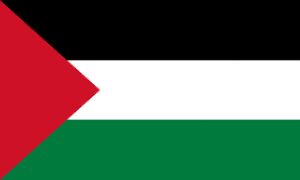
As the Israeli self-created deadline of the 1st of July for the finalization of their annexation plans of the West Bank passed, Palestinian offcials state that the mounting pressure of their diplomatic campaign over the past few months forced Israeli Prime Minister Benjamin Netanyahu to “backpedal” on the finalization of the annexation plans. Cabinet minister Ofir Akunis however suggested that the annexation will take place later in July. Meanwhile, protesters in DC linked the Palestinian cause with the Black Lives Matter movement, shouting anti-Israel slogans such as “Israel, we know you, you murder children too.
Palestinian civil society organizations have formed a national campaign that rejects the European Union’s conditional funding that includes an “anti-terror clause.” This clause, included in the EU’s grant proposals late last year, identifies at least seven Palestinian political parties as “terrorist groups” and calls for civil society organizations to conduct background checks on all members ensuring they are not affiliated with any of the seven identifies parties. Civil society organizations have described this clause as “criminalizing the Plaestinian national struggle against the Israeli occupation.”
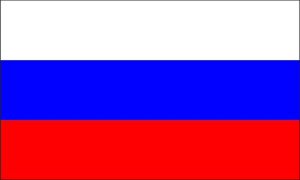
In a constitutional referendum, Russians have overwhelmingly voted in favor of changes that enable President Vladimir Putin to potentially stay in power up to 2036. The state electoral commission reported that the final vote was 77.9% in favor and 21.2% against with a 65% turnout rate, though critics question the legitimacy of the outcome based on voting irregularities. The New York Times recently broke an explosive story about how a unit of Russia’s military intelligence, Unit 29155 of the GRU, allegedly offered bounties to militants in Afghanistan to kill U.S. troops. A recent nuclear leak detected by the Comprehensive Nuclear Test Ban Treaty Organization (CTBTO) may be related to new nuclear-powered strategic weapons Russia is developing, though Russia denies radiation originated from its nuclear power stations.

North Korean leader Kim Jong Un announced that the country had thoroughly prevented COVID-19 from making inroads at a meeting of the politburo, according to state media. Defections from North Korea have reportedly reached a record low as authorities have exploited the COVID-19 pandemic to strengthen technological surveillance. South Korea recently called for a meeting between U.S. President Donald Trump and North Korean leader Kim Jong Un before the U.S. presidential election in November in order to resume stalled nuclear negotiations. 62 countries also allegedly violated United Nations Security Council sanctions against North Korea from February 2019 to February 2020, according to a report from D.C.-based think tank Institute for Science and International Security. China led the list with more than 60 alleged violations, while Hong Kong followed with 20.

On the 29th of June, Iran issued an Interpol arrest warrant for US president Donald Trump and 35 other government officials for their role in the assassination of Iranian military general Qassem Soleimani on the 3rd of January this year. President Trump has insisted that he was not briefed by intelligence officials over an alleged Russian plot to pay out bounties to Taliban-linked militia in exchange for targeting American and British soldiers in Afghanistan.
Iran has also issued a death sentence for opposition journalist Ruhollah Zam for his active involvement in the widespread Iranian protests in 2017 and 2018. Zam was found guilty by a court in Tehran of “corruption on earth.”

On Thursday, Nicaragua bishops criticise Ortega’s handling of the coronavirus, which has devastated the country despite the government’s claim to the contrary.

Tens of thousands of people took to the streets on Tuesday in largely peaceful demonstrations demanding faster reform and greater civilian oversight in the country’s transition towards democracy. A government spokesperson reported that one person has been killed and several others injured during the demonstrations. The protestors are also asking for justice for the killing of demonstrators since December 2018.

Venezuela has announced that it will hold parliamentary elections in December for an expanded number of seats in the new National Assembly. While President Maduro supported the decision, internationally-recognised interim President Juan Guaido accused the government of failing to meet “the minimum conditions of transparency,” announcing a boycott of the polls.

After months of strictly enforced quarantine, Bolivian streets have seen a return of protestors reflecting the country’s ongoing political crisis. Elections remain scheduled for September increasing the political stakes as the coronavirus continues to overwhelm the medical system.